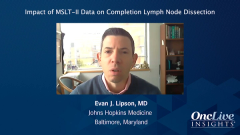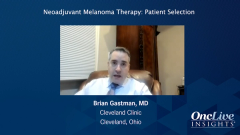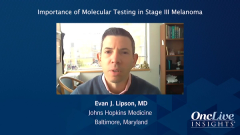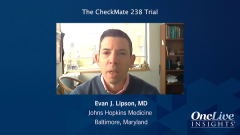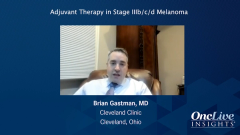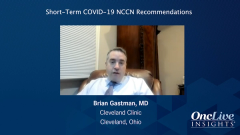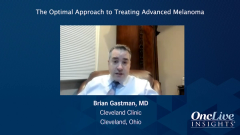
Importance of Molecular Testing in Stage III Melanoma
Episodes in this series

Evan J. Lipson, MD: Molecular testing of melanoma is tremendously important in the stage III setting and across the board as well. I’m an advocate for early next-generation sequencing of melanoma tumors in the high-risk setting, and by high-risk, I mean stage IIB and above, in general.
Those results could inform the possibilities for eligibility for clinical trials in the neoadjuvant setting. It can inform eligibility for standard of care and trial participation in the adjuvant setting. It’s also something that’s good to know about a melanoma patient early in the course of therapy. You never know when a disease might come back, and it sometimes happens rapidly, so knowing the targeted options for a particular patient early on in the course is often very helpful.
As you know, there are 6 medications that are FDA approved for patients with BRAF-mutant melanoma. The hot spot mutations that we hear most about are V600E and V600K. Having said that, there are advantages to knowing what the genetic defects are in melanomas beyond just BRAF and beyond BRAF V600E and V600K. There are mutations that are sensitive to BRAF and MEK inhibition at the 600th locus, for example, and V600R is fairly well reported to be sensitive to BRAF/MEK inhibition.
Additionally, knowing about the NRAS mutation status of a patient’s tumor is important. The NEMO trial demonstrated efficacy in some patients using MEK inhibition. The same is true with c-KIT, which is oftentimes mutant in mucosal melanomas. There, we have the option of using drugs like imatinib as part of the NCCN [National Comprehensive Cancer Network] Guidelines.
I advocate for early knowledge of what the next-generation sequencing results are for patients with high-risk melanoma.
We do not typically test for PD-L1 expression, nor do we test for TMB [tumor mutational burden] in patients with melanoma. Those metrics have been looked at in terms of biomarkers for various clinical settings, such as immunotherapy and targeted therapy. It is sometimes helpful to know those elements for consideration when you’re thinking about clinical trials and eligibility. But in terms of standard of care, we don’t typically send for PD-L1 expression testing or for TMB analysis.
Transcript edited for clarity.


